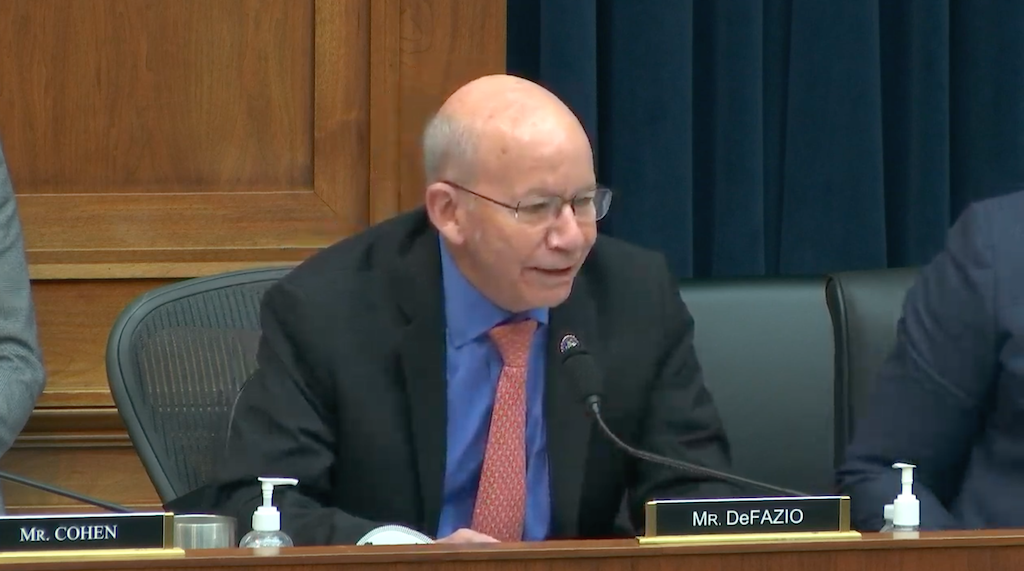Information Sharing Needed to Avoid Aviation-5G Crisis, Congress Hears
Lack of coordination, information sharing was raised as possible culprits in aviation-5G crisis.
Megan Boswell

WASHINGTON, February 7, 2022 – Aviation and telecom witnesses at a transportation subcommittee last week raised a lack of coordination and information sharing as culprits in the ongoing crisis that has stalled the deployment of 5G services around airports for fear of its potential interference with aircraft radios.
Earlier this year, major American airlines warned that they would cancel a significant number of flights if 5G services were turned on around airports. Aviation officials said this interference would put at risk planes that rely on radios to take off and land during inclement weather, and companies AT&T and Verizon have abided by a delay in deploying their C-band spectrum around airports.
At the congressional hearing last Thursday, Federal Aviation Administration Administrator Stephen Dickson attributed the situation – for which a resolution is still being sought – to a lack of “early, open data exchange” of information about possible inference scenarios.
The telecommunication companies “had never delivered this kind of data to the government before,” Dickson said of interference possibilities with the C-band spectrum. The FAA had to put nondisclosure agreements in place in order to get the data they needed.
When Representative Donald Payne, D-New Jersey, asked Dickson what the FAA has learned from this situation, Dickson replied that they have learned that “coordination within the government” and “sharing data between industries” is of utmost importance to avoid similar problems in the future.
‘Dialogue starts earlier’
Meredith Baker, president and CEO of Cellular Telecommunications Industry Association, said conversations needed to begin earlier to avoid conflicts like this.
“[The] process starts earlier. Concerts surface earlier. Dialogue starts earlier, and perhaps never stops,” she said.
At the Consumer Electronics Show earlier this year, telecom industry experts charged that a lack of federal coordination – where the National Telecommunications and Information Administration would bring the different industries together – contributed to the crisis, and that inference issues should’ve before the Federal Communications Commission auctioned off the spectrum in question.
On that point, Dickson said the issue dates back years, with the first concerns being raised in the aviation community in 2015. He said spectrum engineers began working on the problem in 2018 or 2019, but no solutions were met due to the lack of data.
That solution, according to Nick Calio, president and CEO of Airlines for America, will likely take years to develop, he said Thursday. The result could ultimately mean avoiding catastrophic consequences, said representative Peter DeFazio, D-Oregon.
We “are not done with this yet,” DeFazio said Thursday. [But] “Having a dropped call is way less serious than having a dropped airplane out of the sky.”









Member discussion